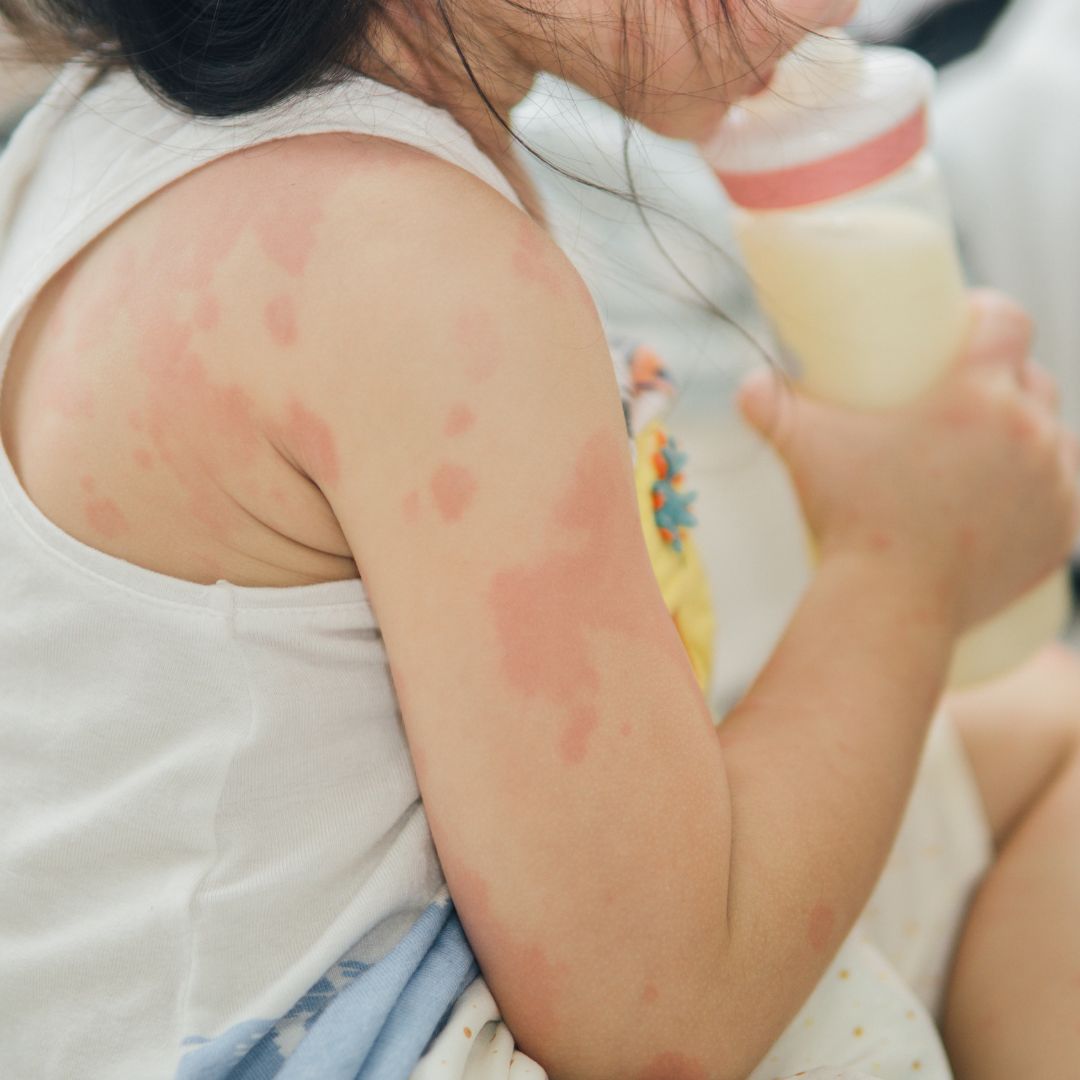By Dr. Peter Klapper Ph.D.
In the winter months, outbreaks of eczema can be quite an annoyance for your child. Eczema, also known as atopic dermatitis, is a chronic skin condition characterized by inflammation, redness, and itching. Approximately 10 to 20 percent of children worldwide experience eczema, and it can often persist into adulthood — more about this in Eczema Causes and Symptoms.
And nothing is worse than chronic itchy skin, which is why effective treatment and management are crucial to alleviate symptoms, improve quality of life, and prevent complications such as skin infections. For holistic approaches, consider reading Homeopathy for Eczema: A Non-invasive and Natural Treatment.
Identifying Eczema TriggersFirst, it’s important to understand your child’s eczema triggers and recognizing common factors that can lead to flare-ups. These eczema triggers may include exposure to irritants like harsh soaps, detergents, or fabrics, as well as allergens such as certain foods, pet dander, or pollen. Once these triggers are narrowed down it can make it easier to help reduce the frequency and severity of eczema flare-ups in children and begin to treat and manage their rash. or more on how stress affects eczema, check out Eczema and Stress: The Connection and How Homeopathy Can Help.
1. Creating a Gentle Skincare Routine
When it comes to products you’re using on your child’s eczema-prone skin, ingredients matter. It’s important that you use fragrance-free, hypoallergenic, and soap-free cleansers to avoid irritating the skin. For additional tips on reducing eczema symptoms, our article 6 Tips to Reduce Eczema Symptoms and Live Better offers valuable insights. Also, understanding the link between eczema and other conditions like asthma can be beneficial; read more in The Link Between Eczema and Asthma in Children.
If your child is struggling to find relief, we recommend trying a natural approach i.e. our Eczema Relief for Kids which contains pennywort that helps to alleviate skin irritation and itching.
2. Gentle Bathing Practices
Because hot water can exacerbate dryness, it’s important to practice gentle bathing. First, be sure to use lukewarm water when drawing a bath. You should also steer clear of harsh soaps, bubble baths, and scented lotions as these can aggravate eczema. Opt for products labeled as hypoallergenic, designed for sensitive skin, or that incorporate oatmeal or bath oils for added relief.
After bathing, gently pat the skin dry with a soft towel instead of rubbing, which can irritate sensitive skin and follow-up by applying a thick lotion.
3. Clothing Choices
Clothing can also be a major irritant when it comes to your child’s eczema. It’s imperative that you dress your child in loose-fitting, breathable, and soft cotton clothing to minimize irritation. Avoid wool and synthetic fabrics, which can be irritating and opt for soft, breathable fabrics and fragrance free products, such as Colored Organic, Mightly, and Grab Green laundry soap & dryer sheets.
4. Natural Remedies and Topical Treatments
Natural remedies and topical treatments are also a good option to treat your child’s eczema. Those may include coconut oil for moisturizing, oatmeal baths for soothing skin, aloe vera gel for its anti-inflammatory effects, a chamomile tea compresses to alleviate irritation, and evening primrose oil (rich in gamma-linolenic acid) for potential anti-inflammatory effects.
In some cases, doctors may prescribe a steroid topical cream. However, steroids at a young age may have lasting effects on your child’s health and suppress the symptoms rather than treat the root cause.
If you’re looking for a natural approach to treat your child’s eczema, try our Eczema Relief for Kids that combines certified organic homeopathic medicine and certified organic essential oils to help soothe & relieve kids' skin irritations & itching due to atopic dermatitis or eczema-prone skin.
5. Dietary Considerations
Identifying potential food triggers and allergens is important in managing your child's eczema. Common food triggers may include dairy, eggs, nuts, soy, and wheat. Keeping a food diary and gradually reintroducing eliminated foods can help pinpoint specific triggers. But to also keep in mind that foods rich in omega-3 fatty acids, such as fish and flaxseeds, can help reduce inflammation.
When to Seek Professional Advice
If your child’s eczema continues to worsen despite caring for it at home with moisturizers and avoiding potential triggers, you should consider seeking professional help. In cases of severe flare-ups with intense itching, redness, or oozing lesions, professional medical guidance is necessary to diagnosis the severity and find alternative treatment options.
All of that to say, effective strategies for treating and controlling eczema in children can make a big difference. By implementing a gentle skincare routine with mild cleansers, moisturizing regularly, and avoiding harsh products and identifying and minimizing triggers, whether they be allergens or irritants, can be crucial for managing flare-ups.


